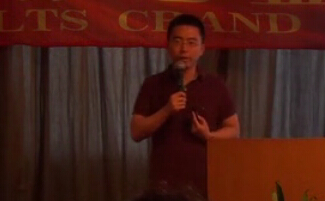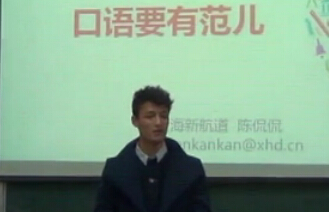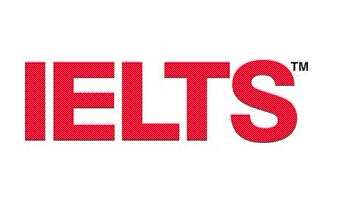雅思阅读模拟试题
2012-02-26 00:00 供稿单位: 互联网
出国英语考试有哪些 雅思6.5是什么水平 雅思阅读评分标准 托福阅读评分标准 雅思和托福的区别
People often ask which is the most difficult language to learn, and it is not easy to answer because there are many factors to take into consideration. Firstly, in a first language the differences are (66) as people learn their mother tongue naturally, so the question of how hard a language is to learn is only (67 ) when learning a second language.
A native speaker of Spanish, (68) , will find Portuguese much easier to learn than a native speaker of Chinese, because Portuguese is very similar to Spanish, (69) Chinese is very different. So first language can (70) learning a second language. The greater the differences between the second language and our first are, the (71) it will be for most people to learn. Many people answer that Chinese is the hardest language to learn, possibly (72) by the thought of learning the Chinese writing system, and the pronunciation of Chinese does appear to be very difficult for many foreign learners. (73) , for Japanese speakers, who already use Chinese characters in their own language, learning (74) will be less difficult than for speakers of languages using the Roman alphabet.
Some people seem to learn languages (75) , while others find it very difficult. Teachers and the (76) in which the language is learned also play an important role, as well as each learner’s motivation for learning. If people learn a language because they need to use it (77) , they often learn it faster than people studying a language that has no direct use in their day to day life.
(78) from different cultures will find different languages more difficult. No language is easy to learn well, (79) languages which are related to our first language are easier. Learning a completely different writing system is a huge (80) , but that does not necessarily make a language more difficult than another.
66. A. apparent B. extensive C. decline D. unimportant
67. A. relevant B. permanent C. essential D. progressive
68. A. by contrast B. in addition C. for example D. after all
69. A. when B. while C. where D. whether
70. A. affect B. achieve C. attach D. assemble
71. A. easier B. harder C. faster D. slower
72. A. inherited B. overtaken C. influenced D. restricted
73. A. However B. Moreover C. Therefore D. Anyhow
74. A. speaking B. listening C. reading D. writing
75. A. gradually B. steadily C. readily D.subconsciously
76. A. learners B. materials C. tutors D.circumstances
77. A. occasionally B. professionally C. properly D. informally
78. A. societies B. characters C. individuals D. visitors
79. A. as B. though C. because D. since
80. A. success B. surprise C. opportunity D. challenge
66—70 DACBA 71—75 BCADC 76—80 DBCBD
新航道雅思培训,由中国雅思之父胡敏教授领衔,中国“雅思梦之队”明星教师授课。签定协议,考试未通过者,免费重读。限制每班的学生数量,让老师能顾及到每个学员。全程跟踪服务,把您的问题留下来,把您的高分带回去。

- 新航道,英语成功之道。时间获取新航道英语学习资料和新鲜资讯,请在微信公众账号中搜索「新航道英语」或者「xhdenglish」,或用手机扫描左方二维码,即可获得新航道每日精华内容推送和英语学习经验分享,并参与新航道举办的各项活动。
精彩专题
更多视频荟萃
更多
-
新航道姚骏鹏-雅思阅读高分攻略
时长:03-06

-
新航道陈侃侃-雅思口语要有范儿
时长:03-06

-
【3分钟学雅思】王大锤告诉你为啥药不能停
时长:01-12

-
【3分钟学雅思】全世界个感官餐厅
时长:01-12
热门文章
更多
-
8月31日雅思广州考机考初体验
选择机考模式的考生将通过机考模式参加听...








